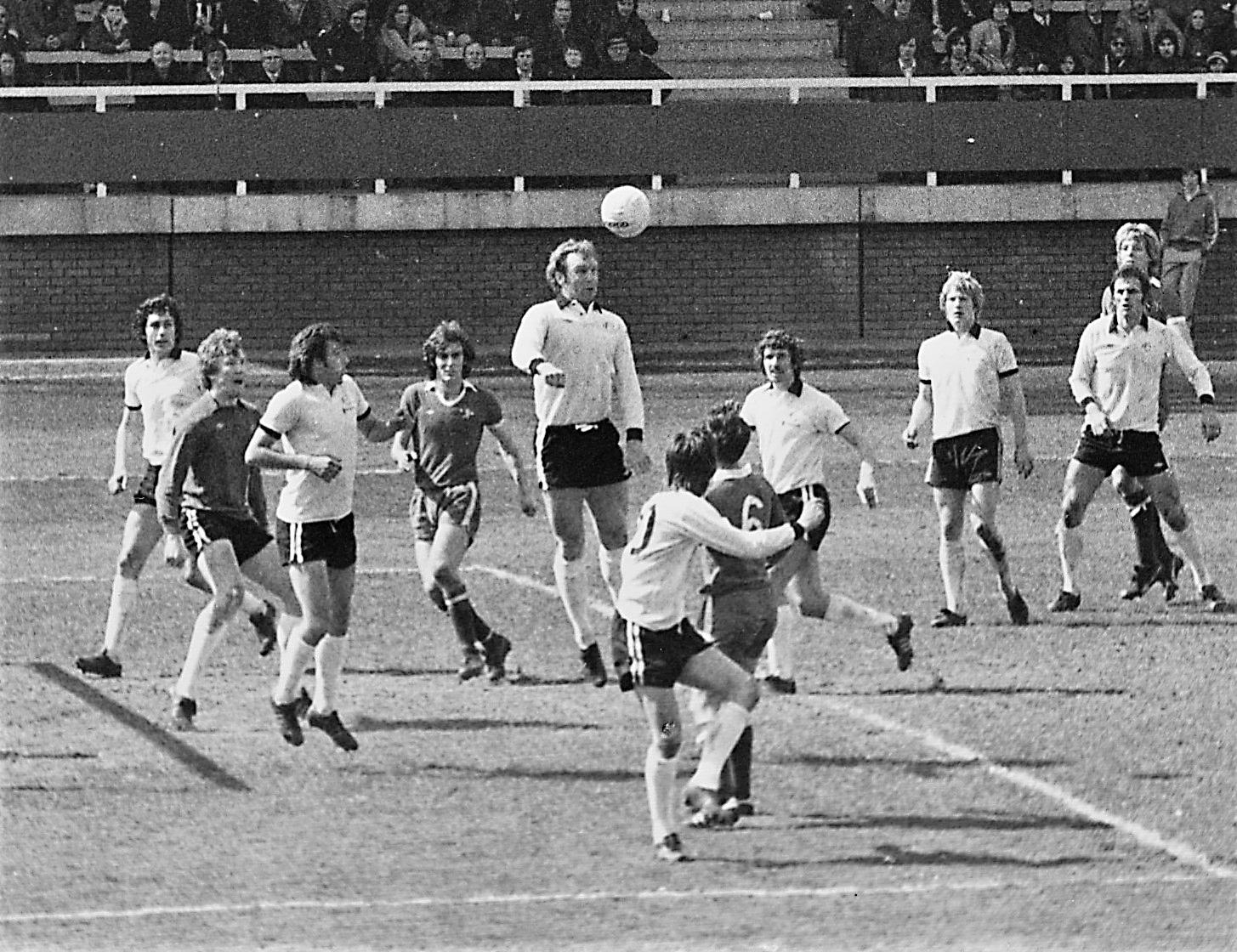The second and final section of a 1995 interview with former Fulham FC player Alan Slough conducted by my daughter Catherine Phillips for the Supporters' Club magazine Cottage Pie and published with her permission. We both offer our sympathy to Alan's wife and family.
A very important part of Alan's time at Craven Cottage centred around the run-up to the 1975 FA Cup Final and the Final itself. He particularly remembered the length of the Cup run, commenting: "Once we started it took us a long time to get to Wembley but we got ourselves into a situation where we thought we could not be beaten. That's what I felt. We were a very resolute side.£
So, what happened?
"I think the problem with the Final was that people had told us how good we were. For the actual Final we went out there to beat West Ham whereas with all the other games we had played away from home we tended to soak up a bit of pressure and hit our opponents on the break. We didn't do that in the Final, we went at them and looking back it was probably the wrong thing to do. We just believed that we could win the Final and we came a bit unstuck, but it was a fabulous run because we were a division lower than the sides we beat. It was a tremendous achievement."
Alan contributed to that Cup run, not only with his fine displays in midfield but with two important goals, the winner against Hull and one against Nottingham Forest.
Because so many of Fulham's Cup ties went to replays, I asked Alan if he preferred that method of deciding who would progress to the next round, replay after replay until someone wins, or if he prefers today's method with one replay and then a penalty shoot-out.
He explained to me: "Because we didn't think we could be beaten, for example against Nottingham Forest, we took four games and could have carried on and they wouldn't have beaten us. It was just a question of when we could beat them. We did eventually at their ground on the fourth time, so it would have been very unfair to stop it after two games and have a penalty shoot-out because we could have gone out that way.
"I suppose on the other hand if we went to a place like Everton, when we played them they were an absolutely massive club. It would be like going to Liverpool or Blackburn today. I suppose, looking at that situation, if you've got a penalty shoot-out in the second game, you have more chance of getting through. Having said that, as I've seen penalty shoot-outs on TV, I think it's best if you keep on playing."
Influences
I asked Alan who – apart from Alec Stock – were his main influences at Craven Cottage?
"Obviously the Bobby Moores and Alan Mullerys of this world. We had some nice people around and some good players. I liked Rodney Marsh and obviously George Best. We were a bunch of triers and we really did have a good laugh; we had fun. It is always easy to think about big stars and say they were an important influence, but I think the whole of Fulham FC became the influence. It influences your life and no one can take away the happy times. That is brilliant."
After Mullery's retirement Alan Slough became team captain. I asked him what this meant to him and how he felt that he coped.
"That was a very proud moment. That was one of the highlights. I felt complimented because we still had Bobby Moore in the side, and George and Rodney. It might have been very overwhelming for some people to have stars like that. It was a great honour. In some ways 20 years on I feel regret because I wish I had had the knowledge that I have now in those particular times. It would be very interesting to see. But I was obviously still a young person and I've learnt a lot through life's experience, but it was a really fantastic honour and I really enjoyed it.
"Proving that there is life after Fulham, I went to Peterborough and then on to Millwall. I finished in 1981. I was the coach at Torquay for 18 months, then I came out of coaching and now I teach at a school and a college, and I run soccer schools.
"I've got my own cleaning business and I'm very, very busy but very established down at Paignton. It is nice because I have rejected offers to go back into professional football and I could have got back on the old merry-go-round. That was five years ago. I resisted it and now we're very, very happy.
"One of the most important things that I find now is that I can teach people and they don't have to win football matches. I teach them to improve. In football what you are trying to do all the time is win matches. Now I can just do what I want.
"It's a great opportunity. It was hard to start with when I first came out of football but, now I can direct my life however I want to. We're very contented down here."
Alan concluded by saying that he looked forward to the Cup Final Anniversary celebrations and to seeing some of his old teammates again.
The views expressed in this blog are those of the author and unless specifically stated are not necessarily those of Hammersmith & Fulham Council.
Want to read more news stories like this? Subscribe to our weekly e-news bulletin.

